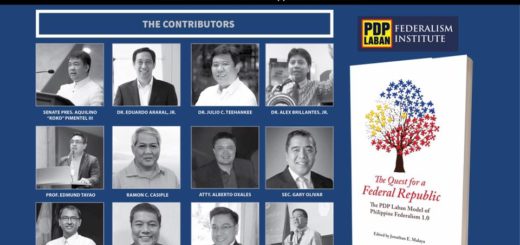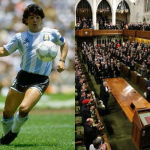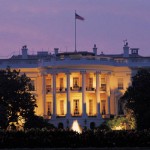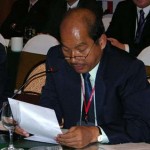Article 7: The Prime Minister and the Cabinet
Section 1. The executive power shall be exercised by the Prime Minister with the assistance of the Cabinet.
Section 2. The Prime Minister shall be elected by a majority of all the Members of Parliament from among themselves.
Section 3. The Prime Minister shall appoint the Deputy Prime Minister who shall head a ministry, and the Members of the Cabinet who shall be the heads of the ministries, at least three-fourths of whom shall come from Parliament. They may be removed at the discretion of the Prime Minister. The Prime Minister shall also appoint the career Senior Deputy Minister for each ministry who shall be a member of the career civil service and shall be the chief administrator of the ministry.
Section 4. Before they enter on the execution of their office, the Prime Minister, Deputy Prime Minister, and the Members of the Cabinet shall take the following oath or affirmation:
“I do solemnly swear (or affirm) that I will faithfully and conscientiously fulfill my duties as (name of position) of the Republic of the Philippines, preserve and defend its Constitution, execute its laws, do justice to every person, and consecrate myself to the service of the nation. So help me God.” (In case of affirmation, the last sentence will be omitted.)
Section 5. The Prime Minister shall have an official residence. The salaries and emoluments of the Prime Minister and the Members of the Cabinet shall be determined by law and shall not be increased nor decreased during their tenure. The Prime Minister shall receive an annual salary as that of the President.
Section 6. The Prime Minister and the members of the Cabinet shall be subject to the provisions of Sections 10 and 11 of Article 6 of this Constitution.
Section 7. The Prime Minister or any member of the Cabinet may resign for any cause without vacating his seat in Parliament.
Section 8. The Prime Minister and the Cabinet shall be responsible to Parliament for the program of government and shall determine the guidelines of national policy. The Prime Minister shall, at the beginning of each regular session of Parliament and from time to time thereafter, present the program of government and recommend for the consideration of Parliament such measures as he may deem necessary and proper.
Section 9. The Prime Minister shall have control of all ministries, bureaus, and offices. He shall have supervision and administration over autonomous territories, local governments, and all of the Armed Forces of the Philippines. He shall ensure that the laws be faithfully executed.
Section 10. Two months immediately before the next regular elections and up to the end of his term, the Prime Minister shall not make appointments, except temporary appointments to executive positions when continued vacancies therein will prejudice public service or endanger public safety.
Section 11. The Prime Minister shall nominate and, with the consent of the Commission on Appointments, appoint the Chief Justice and Members of the Supreme Court and lower collegiate courts, the Ombudsman and his deputies, the Chairmen and Members of the constitutional commissions, the Chairmen and Members of the independent constitutional bodies, Ambassadors, Chiefs of Mission and Consuls-General, the Chief of Staff, the Vice Chief of Staff, and the commanders of the major services of the Armed Forces of the Philippines and the officers of the Philippine National Police of equivalent rank and grade, and all other officers of the Government whose appointments may be subject for confirmation as provided in this Constitution or by law. He shall also appoint the heads of the bureaus and offices, other public ministers and consuls, the officers of the armed forces from the rank of colonel or naval captain, the officers of the Philippine National Police from the rank of senior superintendent, and all other officers of the Government whose appointments are not otherwise provided by law, and those whom he may be authorized by law to appoint. Parliament may, by law, vest the appointment of other officers lower in rank in the heads of ministries, courts agencies, commissions, or boards. The Prime Minister shall have the power to make appointments during the recess of Parliament, whether voluntary or compulsory, but such appointments shall be effective only until disapproval by the Commission on Appointments or until the next adjournment of Parliament.
Section 12. The Prime Minister may contract or guarantee foreign loans on behalf of the Republic of the Philippines with the prior concurrence of the Monetary Board, and subject to such limitations as may be provided by law. The Monetary Board shall, within thirty days from the end of every quarter of the calendar year, submit to Parliament a complete report of its decisions on applications for loans to be contracted or guaranteed by the Government or government-owned or -controlled corporations which would have the effect of increasing the foreign debt and containing other matters provided by law.




 I believe: This is a CoRRECT™ Video with a very positive message
I believe: This is a CoRRECT™ Video with a very positive message Walang Natira: Gloc-9's MTV Rap about the OFW Phenomenon
Walang Natira: Gloc-9's MTV Rap about the OFW Phenomenon


























As we write the different articles, we have to refrain from referring to Articles and Sections still to be written. Just write “as stipulated in Section [TBD] of Article [TBD]”. Later, it would be easy to search for [TBD] to fix undefined references.
I still prefer the Westminster Style, wherein the President asks the Leader of the political party with the most seats in parliament who at the same time be an elected Member of Parliament to form a government as the Prime Minister. In this way, we could easily identify the government and opposition blocs (more importantly the Leader of the Opposition that serves to be the “Prime Minister in-waiting”) in the Parliament thru their political parties.
We could also exclude the argument that “the candidate/nominee garnering the next highest number of votes during the Prime Ministership election shall be the Leader of the Opposition” simply because the Government, in its desire to dominate and avoid true accountability, may put forward two nominees to the position.
Let us be reminded that the Prime Minister is regarded by convention as “first among equals” and by having a separate election for the said position elevates his mandate. It is better that the Prime Minister be appointed by the President to remind him that he is in the position at the behest of the President (who in turn represents the entire Filipino nation), rather than having a debt of gratitude to the politicians who have elected him to the position.